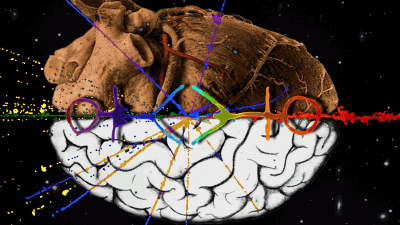"Second brain" controls your thoughts and emotions

It is a well-known fact that "brain" plays an important role for people to consider things and emotions. However, recent studies have shown that the "second brain" that is not the "brain" in the skull controls people's behavior. Scientific YouTube channelAsapSCIENCEIs what it is with the second brain, how the human emotions and behaviors are controllable is explained in a movie in an easy-to-understand manner.
You Have A Second Brain - YouTube
In the brain in our skull, 10 billion neurons send electrical signals and exchange messages with each other, unconsciously affecting emotion and performance.
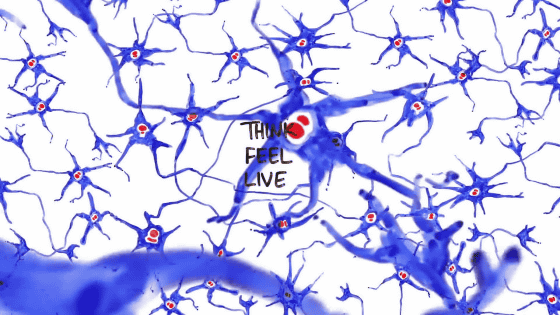
The workings of these brains form "you".
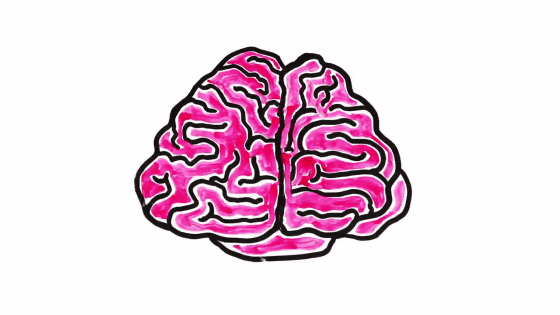
The brain is essential to the body and is the part of people's identity. It is central to the nervous system of vertebrates.
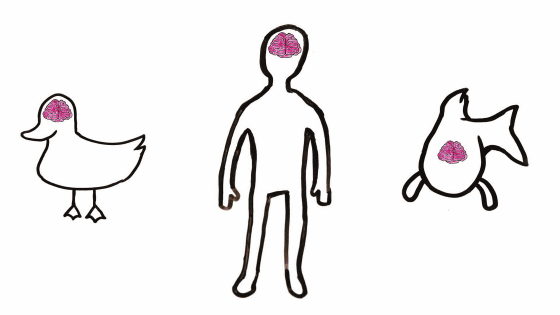
However, it is not well known that "thinking" "feeling" is done not only by the brain and the nervous system but also by the "second brain".
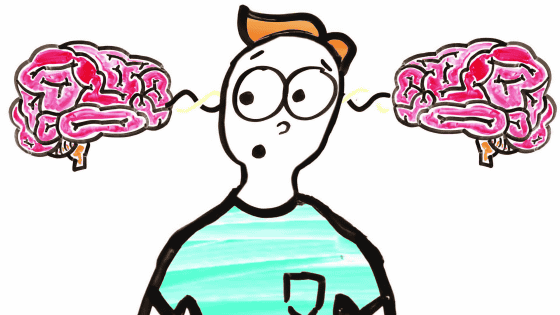
To connect with each part of the body such as the vocal cord, the heart, the lung, the intestines and to communicateVagus nerveIs used.
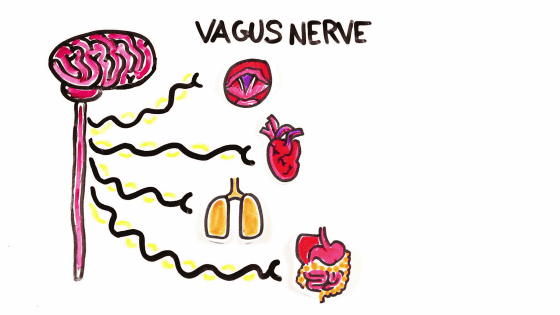
The vagus nerve is "Fight or run away or reactIt is also used when it occurs. "Fighting or fleeing or reaction" is a response to the fear of animals, causing conditions such as losing voice when tense, when exposed to stress, heart pounding, gastrointestinal disorder.
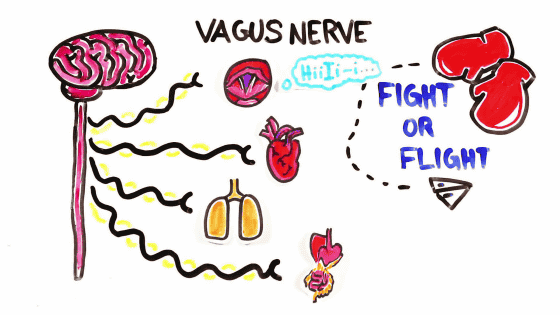
According to scientists, 80 to 90% of the nerve fibers of the intestinal nervous system are "from the brain to the brain" in contrast to "from the brain to each part" I am sending a signal.
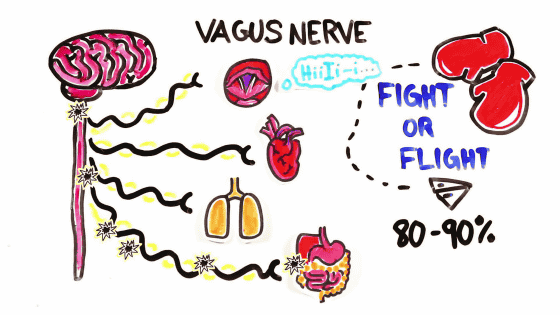
The intestinal nervous system controls the movement of the entire digestive exercise performed from the esophagus to the anus without being sent instructions from the brain, and even if the vagus nerve is cut, it can function in response to food is.
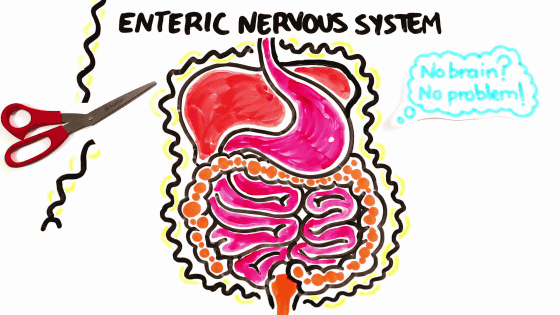
Beyond our imagination, the intestines are fulfilling the function as the "second brain".
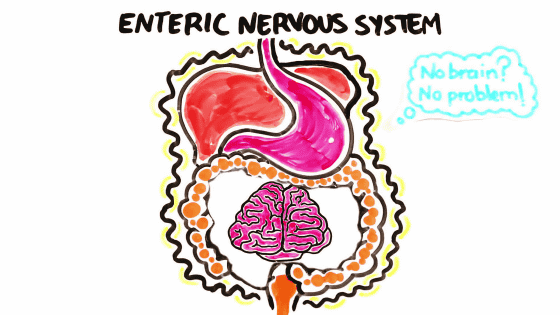
Prior to becoming a society where food is easily obtained like modern day, the biggest choice made by humans was about "eating". Since it becomes more important to judge whether you will not get sick or dead even if you eat, or whether you will give energy to your body, direct communication between the intestines and the brain has been done It was.

For example, as fat and sugar are important sources of energy for the body, our bodies have to eat food containing a lot of fat and sugar and the brainDopamineIt evolved to feel "comfortable" by releasing it. Therefore, we are seeking sugar and fat intermittently.
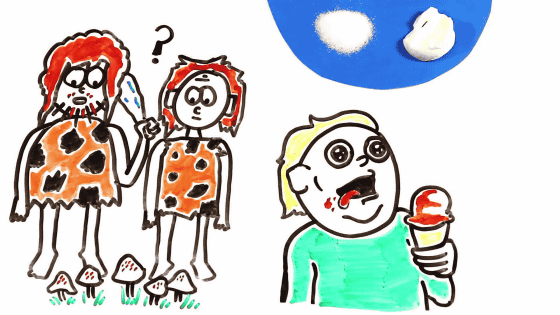
Interestingly, 50% of the dopamine produced in the body,Serotonin90% of that is produced by intestinal bacteria. These two substances have a great influence on the emotions such as mood, happiness, and joy of people.
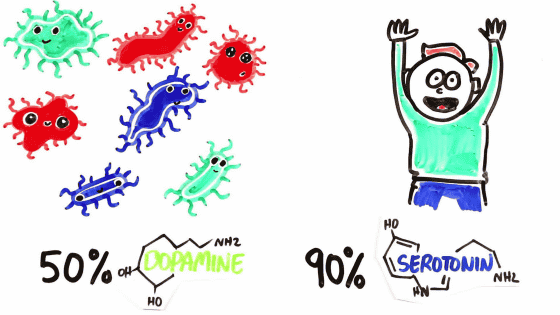
In addition, intestinal bacteria have been found to influence food behavior, such as "what kind of foods do people want"? Depending on our diet, "Which intestinal bacteria will prosper" will be decided, but at this time, the prosperous bacteria are transmitted to the brain through the vagus nerve "As human beings eat foods they like" a signal I will send you. To eat too muchTransplanting feces other than yourself into the intestinesTo do,ProbioticsThis is why there are scientists who recommend. By removing bacteria that demand sugar and fat from inside the gastrointestinal tract, we will erase our desires.
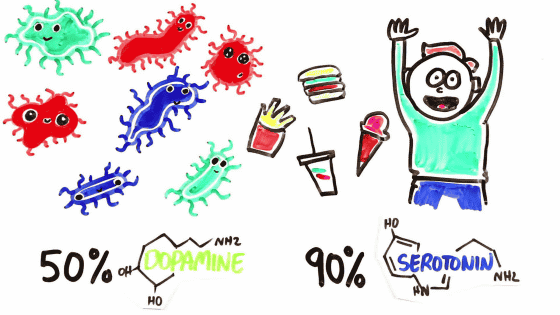
Intestinal bacteria are also thought to change human behavior. It was raised in an aseptic environment that bacteria do not prosper in the intestines, and the mouse said that behavior like autism was seen in the mouse.
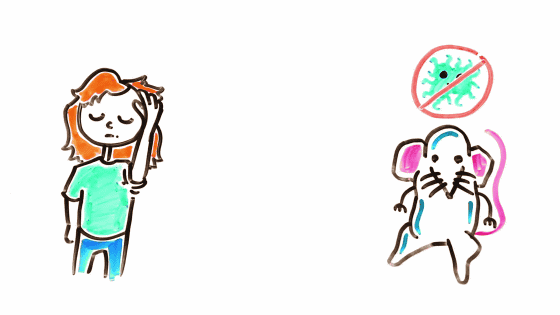
So researchers looked at the mouse brain and found that there was a significant change in serotonin and specific protein levels related to learning and memory. However, given certain probiotics to mice, the symptoms are relaxed. I found that intestinal bacteria were controlling mouse behavior.
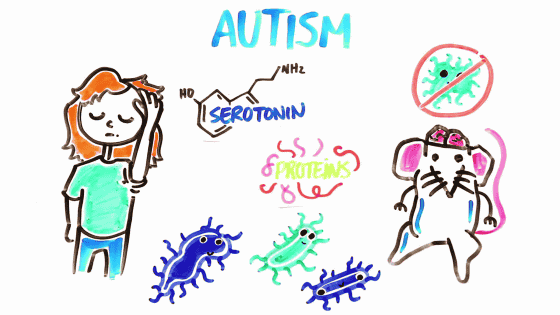
It is also known that those who continued to eat yogurt of probiotics for 30 days have lower levels of anxiety and depression than those who have continued to ingest milk without bacteria.
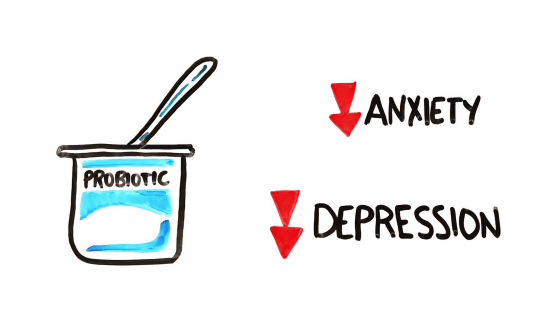
Yet another study found that mice ingesting specific bacteria had less stress hormone in the blood and improved performance of learning and memory testing.
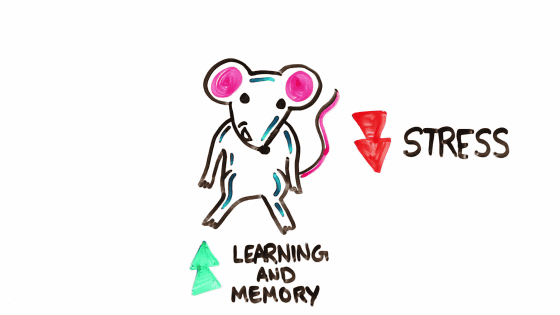
At this time, we know that when you cut the vagus nerve of the mouse, the changes like those mentioned above disappear.
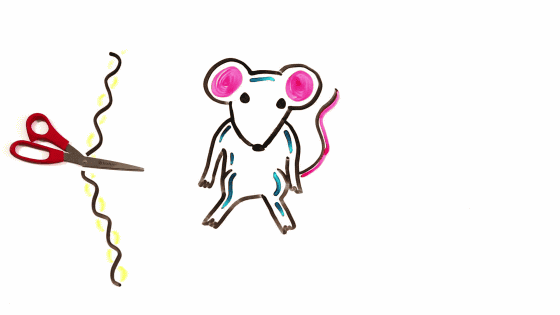
In a study that embeds a small pacemaker in the body and stimulates the vagus nerve with multiple kinds of frequencies, by imitating a signal sent from inside the intestine of a healthy person, treatment resistant depression that does not respond to treatment such as antidepressant It has been reported that it can be treated.
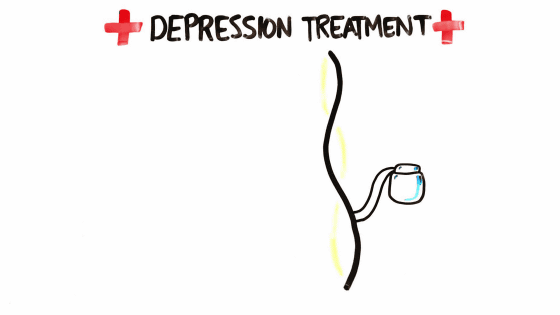
Currently, there are researchers thinking that micro-biomes will promote social behavior in society, considering that "genes with promising in social group increase." Intestinal bacteria have a role to counter negative emotions and may have a positive influence on forgiving people and raising or raising children.
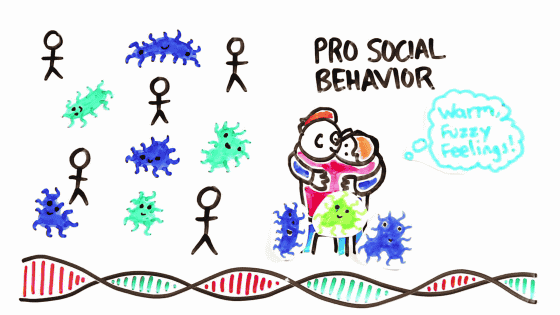
Related Posts:


